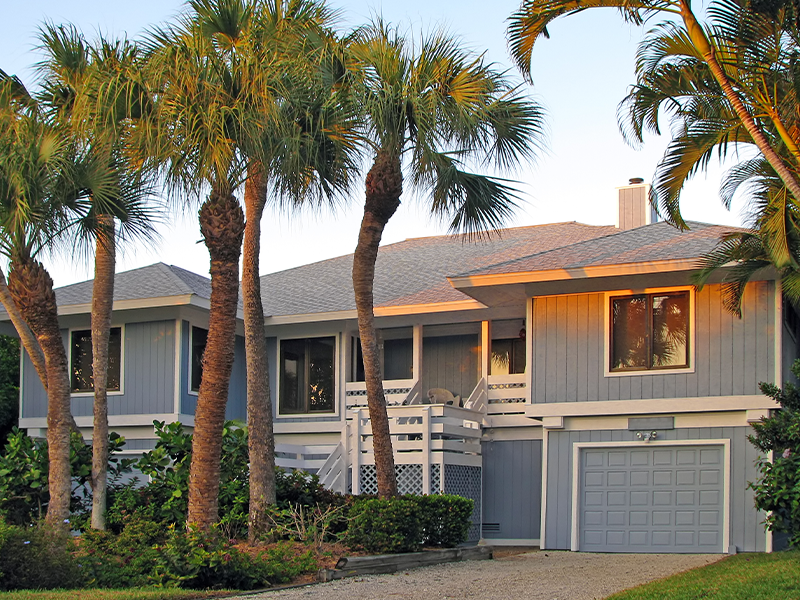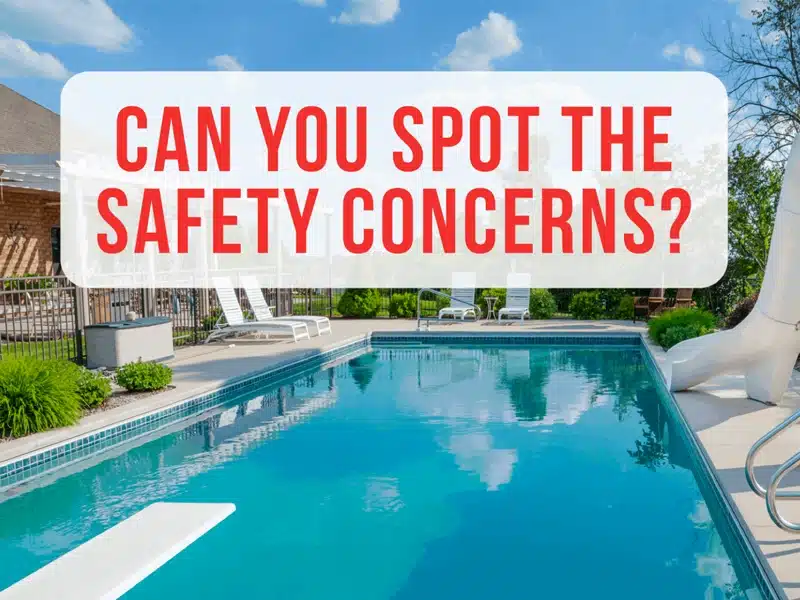Everything Hosts Need to Know about Airbnb Laws and Regulations in Florida
Numerous Florida cities and counties have enacted additional Airbnb laws and regulations to better monitor the short-term rental industry that is booming in the state. Florida remains the number one destination for short-term vacation rentals, with Miami Beach being the top destination in the country.
Most cities will require hosts to register their property with the city or county and pay appropriate resort taxes.
If you have questions about short-term rentals in Florida, contact Proper Insurance. Our agents are experts in the vacation rental industry in your area. Call 888-631-6680 today. For Florida hosts, staying up-to-date on these local rules—and ensuring your insurance covers the unique risks of short-term rentals in the Sunshine State—is essential for protecting your property and business.
Schedule a quick 15-minute consultation to verify your coverage and secure peace of mind.

Fort Pierce, Florida
Airbnb Laws and Regulations in Fort Pierce
Fort Pierce, Florida had finalized additional Airbnb laws and regulations as of July 14th, 2021. These laws seek to balance community concerns and short-term rental advocates. To operate a short-term rental, an owner must be aware of the following:
- Safety: Adherence to all fire and safety codes, including the requirements of the smoke and carbon monoxide detection and notification system
- Hot Tub: If a rental contains a pool or hot tub, it must conform to the Residential Swimming Pool Safety Act, Chapter 515
- Contacts: Owner and local service emergency information must be available to guests, including either a provided landline or cell phone with the ability to call 911
- Property Manager: An owner may designate a property manager or responsible person to manage the rental unit. This person must reside on the property while it is being let to guests.
- Permitting: All short-term rentals are required to hold a permit with the City of Fort Pierce, and a Business Tax Receipt (BTR)
Additional information can be found on the Fort Pierce website.
Hollywood, Florida
Airbnb Laws Hosts Need to Know in Hollywood
As of January 20th, 2021, new Airbnb laws have taken effect in Hollywood, FL. Many of these laws come at the behest of community concern, given the increase in tourism to the city. Short-term vacation rentals will now have to
- Parking: Short-term rentals are subject to parking limitations and trash container requirements
- Licensing: All short-term vacation rentals are required to hold a license with the city of Hollywood.
- Point of Contact: A designated agent must be available 24/7 to respond to issues and complaints that may occur at the property.
- Noice: A noise monitoring system at the property.
- A certificate of insurance coverage to cover liability for injury or harm to occupants and other invitees
Hollywood specifically requires hosts to secure and provide proof of appropriate coverage for their Airbnb and encourages hosts to make sure they have the right policy, as “a standard homeowner’s or renter’s insurance policy may not necessarily provide such liability coverage” as defined in the ordinance. Additional information can be found on the Hollywood, FL website.
Kissimmee, Florida
Laws and Regulations for Short-term Rentals
Kissimmee is a well sought after tourist destination and according to Hosty is considered an excellent place to invest in an Airbnb due to its location and friendly regulations. The City of Kissimmee does, however, have strict zoning classifications and laws, where STRs can and cannot exist.
The following regulations are currently in place:
- Business Tax Receipt: Hosts must obtain a business tax receipt. They are considered business owners.
- Building Code: To ensure properties are safe and habitable, the STR homes must be up to Florida building code.
- Zoning: House must be in a correct STR zoning district.
Marco Island, Florida
In the Proposal Phase of Enforcing Short-Term Rental Regulations
Marco Island is considering a new ordinance that would enforce short-term rental (STR) hosts to hold $1 million in liability insurance along with other requirements by Jan. 8, 2024. The revised laws for Airbnb, Vrbos, and other short-term rentals are in response to the growing vacation rental market in the area and aim to address common issues associated with STR properties.
The following regulations and ordinances are currently enforced on the island:
- Proof of ownership: STR’s must be the primary residence of the owner.
- Insurance requirement: To operate, hosts must hold a certificate of insurance demonstrating a minimum of $1 million in liability coverage.
- License: A transient rental license, either pending or valid, issued by the Florida Department of Business & Professional Regulation, is required.
- Point Person: A designated contact person who can be reached at any time, 24/7, in case of any concerns related to parties or events at the short-term rental must be provided.
- Parking: Must have a clear driveway and entrance as well as a photo or sketch of the off-street parking options.
- Noise: Noise ordinances established by the city must be followed.
- Safety: Working smoke detectors, carbon monoxide detectors, and a fire extinguisher must be available.
- Hot tubs: Compliance with hot tub safety rules is mandatory.
Miami Beach, Florida
Restrictive Airbnb Laws in Miami Beach
Despite the restrictive Airbnb Laws enacted by Miami Beach, it remains the number one destination spot for short-term rentals. The rental business is booming with just under 8K rentals during quarter two of 2022. If your short-term rental is part of that 8K, here is what’s required in order to maintain good standing according to the city ordinance:
- Zoning: Proper zoning authorization and approval
- Permitting: A certificate permitting the use of the property as a short-term rental
- Safety: Compliance with all fire and safety codes
- A Business Tax Receipt
In addition, the city ordinance limits the areas within Miami Beach the number of times a rental can be leased in a seven-day period. No unit may be rented more frequently than once every seven days. While these regulations are restrictive, the market isn’t slowing down in Miami Beach, and offers a huge opportunity for short-term rentals.
Orlando, Florida
Orlando Amends Airbnb Laws to Include Property Registration Requirements
As of July 1st, 2018, Airbnb laws have been amended to allow short-term rentals in the city with a permit. In order to register your short-term rental and receive a permit, you will need to provide the following information:
- Host on Site: The city resident applying for the Home Sharing Registration (registrant) must live on-site and be present when hosting guests.
- Proof of Ownership: The registrant must provide two forms of proof of residence to establish primary residency.
- Room Sharing: The registrant must verify the total number of bedrooms on the property and how many will be devoted to home sharing, as only 50 percent or less can be devoted to hosting guests.
- Quantity: Only a single booking is allowed at one time.
- HOA: If within a mandatory home owner association (HOA), an approval letter is required from your HOA with your registration.
- Permission: If the registrant is not the property owner, they must provide notarized permission from the landlord or owner to operate.
- Taxes: Hotel/motel taxes are to be collected from guests. Airbnb automatically collects these taxes, however Vrbo and other listing sites may not, and it is the host’s job to collect.
- Fee: The registrant is required to apply online, as well as pay an annual fee of the following:
- First year: $275
- Each year after –
- $100, if owner lives on the property
- $125, if non-owner occupied property
Other restrictions laid out in the city ordinance include a guideline for online advertising, such as on platforms like Airbnb and Vrbo. All listings and advertising must include the rental permit number. To register with the City of Orlando, visit their website and provide the appropriate documentation.
Palm Beach County, Florida
Palm Beach County Approves Additional Tax Registration Airbnb Laws
As of 2019, Palm Beach County in Florida has adopted additional Airbnb laws to better document short-term rentals in the area. All rentals must submit an application and be approved by the county before the rental service. The application includes:
- A Business Tax Receipt account number
- Tourist Development Tax account number
The Business Tax Receipt and Tourist Development Tax account both can be registered through the Palm Beach County website. To register, hosts will have to provide proof of identity, and the property control numbers for each listing property-which can be located on the county tax collection website. Owners must pay taxes based on the occupancy of their rental monthly. If no rental activity occurs in a given period, owners must still submit a tax return to the county showing no activity.
Palm Coast, Florida Airbnb Laws
Short-Term Rental Laws for Hosts in Palm Coast, FL
In March 2025, Palm Coast implemented new short-term rental (STR) regulations under Ordinance 2025-01, aiming to balance tourism growth with neighborhood integrity. Key requirements include:
- Licensing: STR operators must register their short-term rental home annually with the city. The primary short-term rental owner must undergo a background check and ensure no other occupants of the rental property are sexual offenders or predators.
- Registration: According to Ordinance 2025-01, documents required for registration include a Sample Lease Agreement, Designation of Responsible Party, a County Business Tax Receipt, Florida Department of Revenue Certificate of Registration, Florida Department of Business and Professional Regulation License, Payment of Application Fee, Executed Affidavit, and Advertising Compliance.
- Occupancy Limits: A maximum of 10 guests per rental unit is permitted.
- Safety Compliance: Properties must have functional smoke detectors, carbon monoxide detectors, and fire extinguishers.
- Point of Contact: A local contact person must be available 24/7 to address issues within two hours.
- Pets: No more than two pets per rental house. All dogs and cats must be leashed when outside the rental property boundaries.
- Parking: All vehicles must be parked within the property’s driveway; parking on sidewalks, streets, or swales is prohibited.
- Trash: Garbage must be disposed of in receptacles approved by the City. Trash should not be out before 6 p.m. the day before pickup and should be removed before midnight the day of pickup.
- Noise: Quiet hours are enforced from 10 p.m. to 7 a.m.
- Fees: A $400 registration fee and a $200 annual renewal fee are required.
- Taxes: STR operators must collect and remit state sales tax, Flagler County tourist development tax, and applicable local taxes. Tourist development tax filings can be submitted via Flagler County’s TouristExpress™ portal.
- Trash: Proper waste management practices must be followed.
- Enforcement: Non-compliance may result in fines, revocation of licenses, or both. For full requirements, visit the City of Palm Coast STR Program.
- More Information: For detailed information and resources, visit the City of Palm Coast’s Short-Term Rental page.
Pinellas County, Florida, STR Laws
Updated Airbnb Laws in Pinellas County, FL
In March 2025, Pinellas County adopted new short-term rental laws under Ordinance 2025-01 to enhance accountability and preserve neighborhood quality. Key requirements include:
- Registration: STR operators must obtain a Certificate of Use annually. Applications are due by May 31, June 30, or July 31, depending on the property’s ZIP code.
- Occupancy Limits: A maximum of 10 guests per property is allowed, including children. Occupancy is calculated as two guests per bedroom plus two additional guests in common areas.
- Safety & Compliance: Properties must pass a safety inspection before certification, with re-inspections required every two years.
- Parking: One off-street parking space is required per three guests. Parking on lawns does not count toward this requirement.
- Noise: Quiet hours are enforced from 10 p.m. to 9 a.m. Noise complaints can be reported to the Pinellas County Sheriff’s Office or the 24/7 Short-Term Rental Hotline.
- Fees: The Certificate of Use costs $450 (split into two payments), with an initial inspection fee of $150. Annual renewals are $450, and re-inspections every two years cost $100.
- Enforcement: Non-compliance may result in fines or license revocation.
- More Information: For full details, visit the Pinellas County STR Program page.
Sarasota, Florida
Adopts Ordinance for STR Regulations
On Feb 5, 2024, the city of Sarasota adopted Ordinance 24-5506 which updated short-term rental (STR) regulations including a rental certificate of registration to operate. Visit the city’s website learn more on short-term rental laws and regulations in Sarasota.
The following regulations are currently in place:
- Rental Certificate: All single, two, three and four-family dwelling units zoned residential must obtain a vacation rental certificate to operate a STR.
- Annual Inspection: Along with the annual renewal of the certificate, an inspection is completed to ensure compliance with the ordinance.
- Signage: Must have the following posted in an obvious location on an interior wall at the STR.
- Location of the nearest hospital
- Non-emergency police phone number
- Trash and recycling dates with approximate pick-up times
- Point of contact name and number that can be reached 24/7
- Emergency evacuation instructions
- Occupancy limits
- Number of vehicles allowed
- Notice of respect – statement about keeping it quiet in the neighborhood with City Sounds Ordinance information.
- Safety: Must adhere to the following safety protocols
- Pools, spas and hot tubs must comply with the Pool Safety Act.
- Smoke detectors and carbon monoxide detectors must be maintained and located in their respective places around the STR.
- The home must also have a multi-purpose dry chemical 2A:10B:C fire extinguisher located in a visible spot or with appropriate marking if hidden.
Verify Your Short-Term Rental Insurance
Interested in a policy to protect you and your business from liability and damage claims? Proper Insurance is the nation’s leading short-term rental insurance provider, protecting homes in all 50 states and replacing inadequate Homeowners and Landlord policies with far superior coverage for the actual risks you face as a vacation rental owner and host.
Proper Insurance’s comprehensive coverage meets or exceeds standard short-term rental requirements with $1M Commercial Liability (CGL) and unmatched protection for your property and revenue. Additional custom coverages include guest-caused theft/damage, amenity liability (bikes, kayaks, hot tub, etc.), bed bugs, fleas, squatters, and more.
Please note: The information provided is intended as a guide and may not be comprehensive or current. Regulations may change and could vary by area or situation. Always consult local authorities or a legal professional to ensure you have the most accurate information for your short-term rental property.





